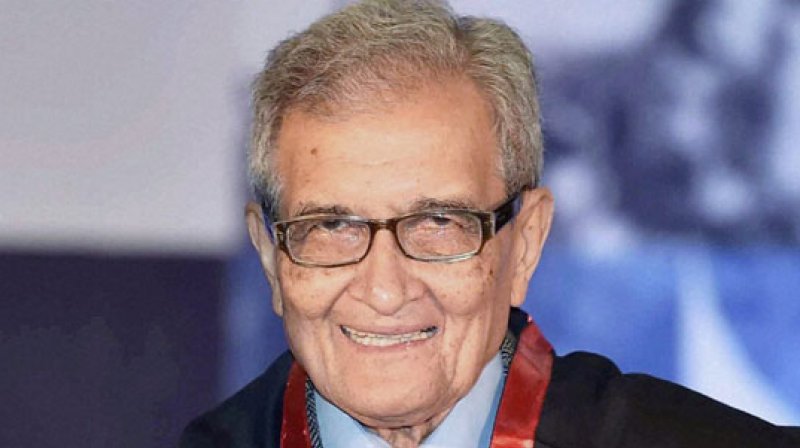Indians have been “much too tolerant” of intolerance, Nobel laureate Amartya Sen said on Friday and asked people to “work hard” to preserve the tradition of tolerance and plurality which he said was not being done adequately.
Sen, a distinguished economist and a Bharat Ratna recipient, emphasised that intolerance of dissent did not start with the “present government”. This period has only added substantially to the restrictions that already were, he said.

He also called for a reexamination of the need to continue with “remnants” of the the colonial rule such as Section 377 and Section 295 A of the Indian Penal Code (IPC) which he said impose “unfreedom” on people. “The Constitution does not have anything against having beef or storing it in the refrigerator,” Sen said while delivering the annual ‘Rajendra Mathur Memorial Lecture’ on the topic “The Centrality of the Right to Dissent” organised by the Editors Guild of India.
“The problem is not that Indians have turned intolerant. It’s on the contrary. We have been much too tolerant even of intolerance. When some people are attacked by organised detractors they need our support. “It’s not adequate for us to be offended by their attack. We need to do something about it. This is not happeing adequately right now. And it did not happen adequately earlier as well,” Sen said.
“Unfreedom is no longer imposed by us by our colonial masters. Have these unfreedoms really ended? Laws legislated by imperial rulers still govern many parts of our life. Section 377 is the most talked about,” he said. Section 377 criminalises gay sex.
Sen also pointed out Section 295 A to be another remnant of British law under which a person can be can be sentenced for hurting the religious sentiment of others “however personal and however bizarrely delicate that outraged sentiment might be.”

















